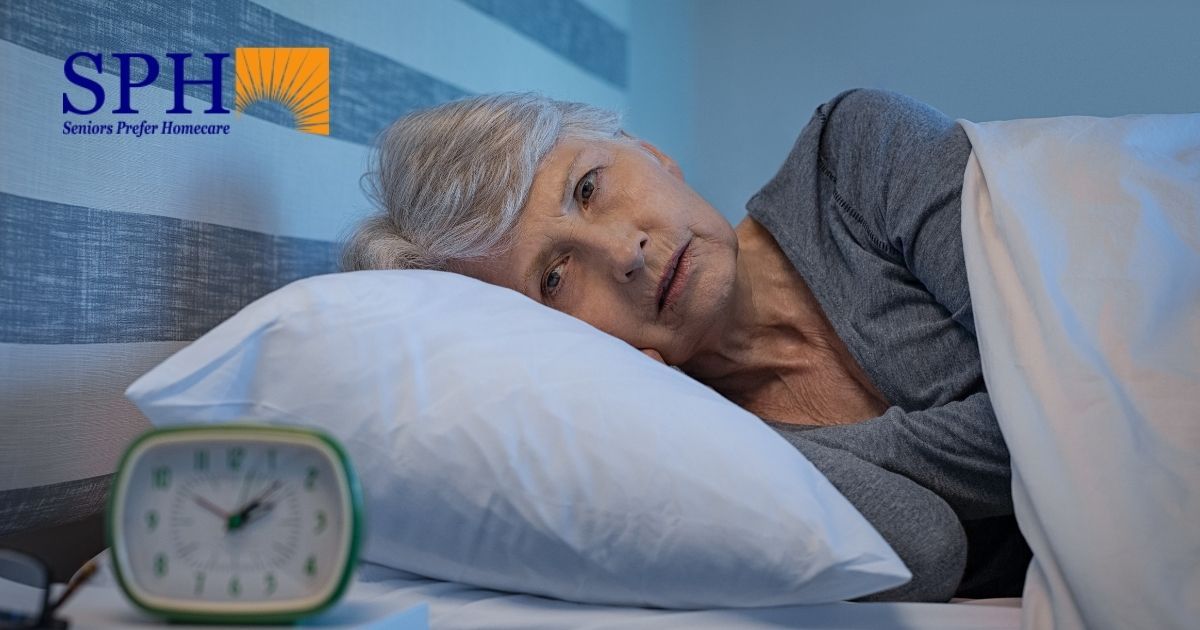Sleep. We all need it, but many of us don’t get enough of it—especially aging-in-place seniors.
Doctors have long said that sleep is a core pillar of health. It’s been studied for decades by the medical community. As a result, there is now more agreement between researcher’s findings than ever before.
How does chronic sleep deprivation affect the body and mind? Does sleep change with aging? How can seniors enjoy better sleep?
Chronic Sleep Deprivation and its Long-Term Health Effects
Chronic sleep deprivation reduces your mental performance and alertness. It’s also been linked to a number of life and health problems. These include:
- Anxiety and/or depression –sleep deprivation has been proven to increase the likelihood of having either or both of these mental disorders
- Developing cardiovascular disease – A study of 20,000 adults who slept less than 7 hours per night had a higher risk of cardiovascular disease
- Increased inflammation in the body – this also is a contributor to cardiovascular disease
- Weaker functioning of the immune system – one study found that people that are sleep deprived are three times more likely to develop a cold
- Increased risk of obesity – not sleeping changes hormones associated with appetite, contributing to obesity
Other factors can also impact the onset of these conditions for seniors, such as diet and exercise.
How Sleep Changes With Age
Older adults often develop a physical health problem that affects the length and quality of their sleep, including sleep apnea, heart failure, frequent urination, gastroesophageal reflux disorder, and untreated pain.
But, even in the absence of an underlying medical condition, aging changes the duration and quality of sleep. Experts have found three interesting things so far:
- As we age, total sleep time decreases – by approximately 30 minutes per decade, starting in mid-life
- Sleep becomes lighter and more fragmented – time spent in deeper REM sleep declines
- The body’s inner circadian rhythm changes – resulting in seniors getting sleepier during the day and waking up earlier
Experts believe that most sleep problems are caused by either a physical or mental health problem, or a medication effect.
Sleep Tips for Seniors
Though lack of quality sleep is a cause for concern for many seniors, they can take steps to improve their sleep. Here are a few tips:
- Exercise – older adults who exercise regularly fall asleep faster than those who don’t, sleep longer, and report that the quality of their sleep has improved.
- Reduce bedroom distraction – Eliminate or reduce time spent watching TV in bed, using a cellphone right before turning off the light, and the brightness of the light in your bedroom. Reserve the bedroom for sleeping.
- Develop a bedtime routine – enjoy a bath, reading, or finding some time to sit quietly before getting into bed.
- Avoid substances that impair sleep – alcohol, tobacco, caffeine, and large meals late in the day add to an older adult’s sleep challenges. Cut back or eliminate drinking alcohol and caffeine, smoking, and eating four hours or less before bedtime.
If an older adult in your life complains about poor sleep, never assume they’re just “getting old.” Investigate it further. It’s often possible to improve a senior’s sleep once underlying problems are identified.
Let Our Caregivers Help
Our professional caregivers can assist your senior loved one with their daily routine and can even help with 24-hour care. In addition to 24-hour care, our compassionate professionals can support activities of daily living with services like personal care, dementia care, household duties, companionship care, live-in care, and respite care.
At SPH, our mission is lifting the spirits of those we serve while maintaining their independence, dignity, and self-esteem. To learn more about our “cream-of-the-crop” home care services now, or to schedule a FREE initial consultation for a senior in Tuscaloosa or Huntsville, AL, today, please visit Seniors Prefer Homecare at www.seniorspreferhomecare.com!

